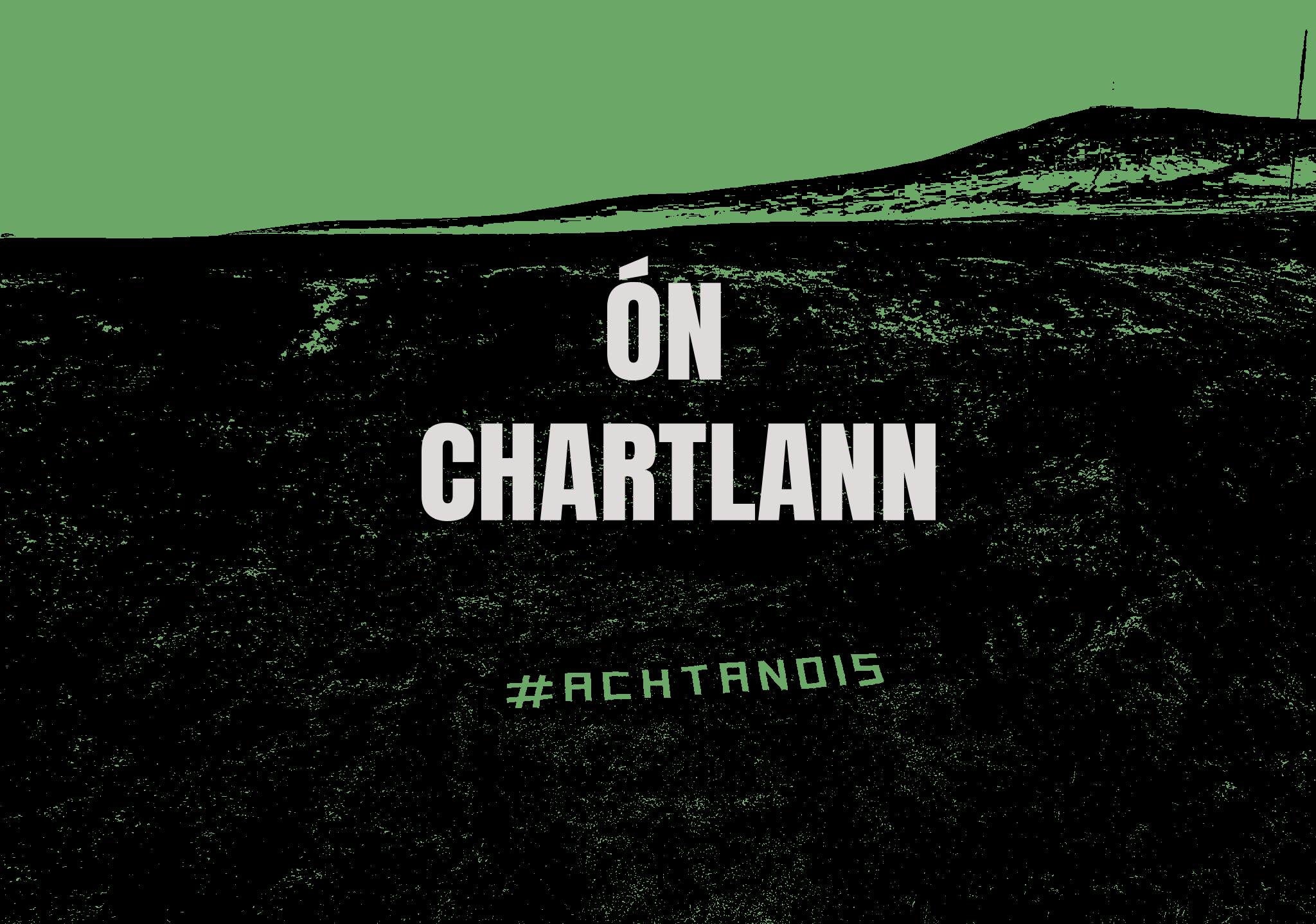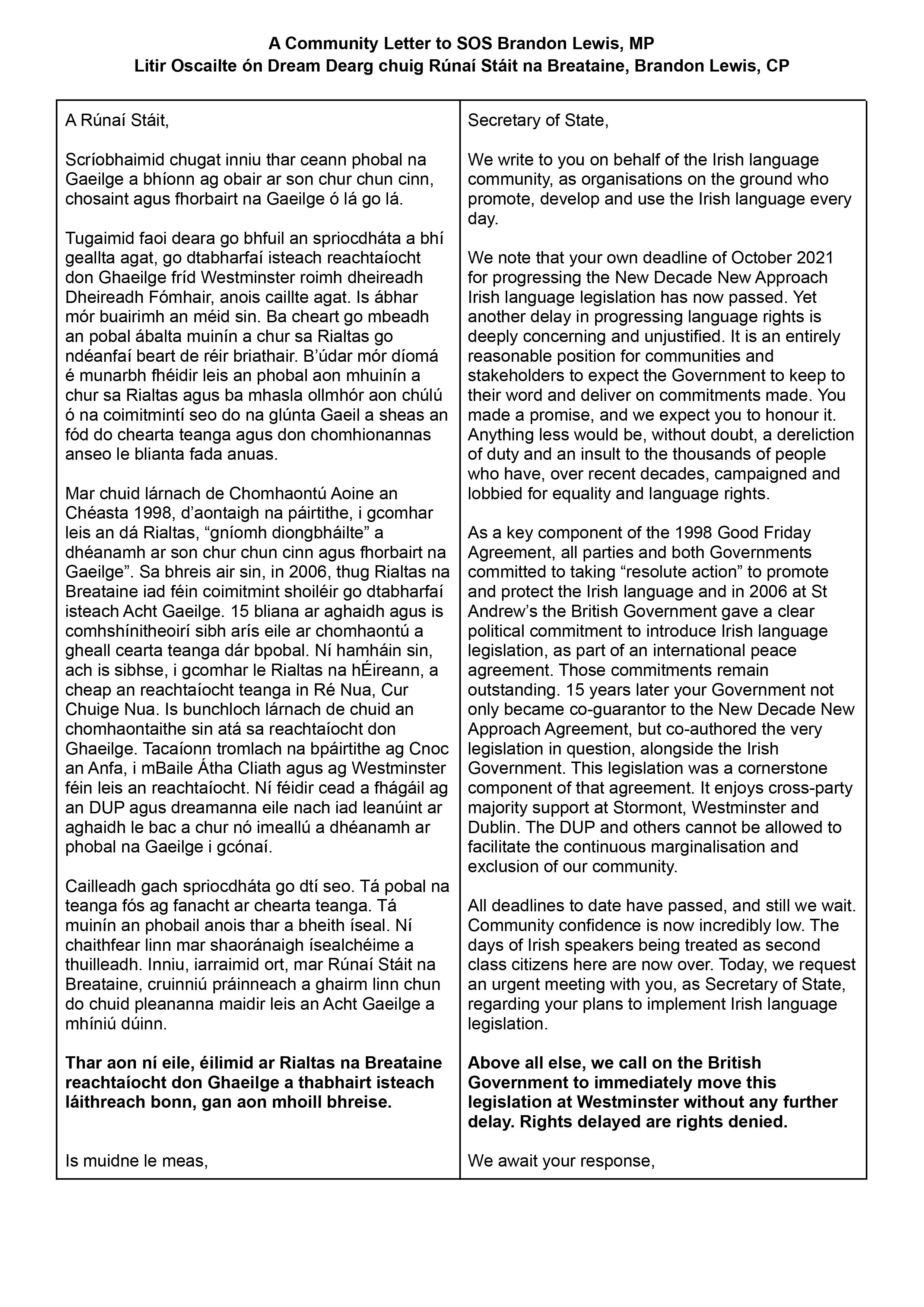An litir dhearg
Bí ar an eolas! Faigh ár nuachtlitir le bheith suas chun dáta leis na feachtais ar fad.

OVER 50 organisations have signed an open letter calling on the Secretary of State Brandon Lewis to “immediately move Irish language legislation at Westminster”.
The groups came together at Cultúrlann McAdam Ó Fiaich this afternoon to officially launch the letter, which was drafted by the Irish language campaign group An Dream Dearg.
It calls for an “urgent meeting” with the Secretary of State to discuss plans for the implementation of Irish language legislation.
The New Decade New Approach agreement (January 2020) committed parties and governments to implementing Irish language legislation within 100 days.
In June, the Secretary of State Brandon Lewis gave the Stormont Assembly a final deadline of September 2021 to enact the legislation, committing his own government to bringing forward legislation through Westminster by October 2021.
Earlier this month, the British government sent a letter to parties announcing its intention to introduce Irish language legislation and inviting them to a technical briefing on the proposals. The government said legislation would be introduced “as soon as parliamentary time allows”, but did not set a firm date for its implementation.
In their open letter, Irish language organisations noted the passage of the British government’s own October deadline, describing the delay as “deeply concerning and unjustified”.
“You made a promise and we expect you to honour it,” the letter reads.
“Anything less would be, without doubt, a dereliction of duty and an insult to thousands of people who have, over recent decades, campaigned and lobbied for equality and language rights.”
An Dream Dearg and its constituent organisations outlined unfulfilled commitments to the Irish language legislation as agreed in the 1998 Good Friday Agreement and the 2006 St Andrew’s Agreement.
"15 years later your government not only became a co-guarantor to the New Decade New Approach Agreement, but co-authored the very legislation in question, alongside the Irish Government.
“This legislation was a cornerstone component of that agreement. It enjoys cross-party majority support at Stormont, Westminster, and Dublin. The DUP and others cannot be allowed to facilitate the continuous marginalisation and exclusion of our community.”
The letter states that, with “all deadlines to date” having passed, “community confidence is now incredibly low”.
“The days of Irish speakers being treated as second class citizens here are now over,” it reads.
Speaking to the Andersonstown News, An Dream Dearg spokesperson, Conchúr Ó Muadaigh, expressed reservations about the British Government’s “technical briefing” and called for “a concrete set of dates” for the implementation of Irish language legislation.
“New Decade New Approach has been agreed, the draft legislation has been published, the parties have signed up to New Decade New Approach and in particular the Irish language legislation, which was a cornerstone commitment of the that agreement,” he stated.
"It was the basis for the restoration of the Executive. There are no more briefings to do, there are no more consultations to do. This is a matter of actions more than words.
“The Secretary of State committed to introducing this in October 2021, he has now missed his own deadline. We’re now asking for a concrete set of dates in terms of the implementation of legislation. It is crucially important that this is implemented before the current mandate is out.”

Bí ar an eolas! Faigh ár nuachtlitir le bheith suas chun dáta leis na feachtais ar fad.